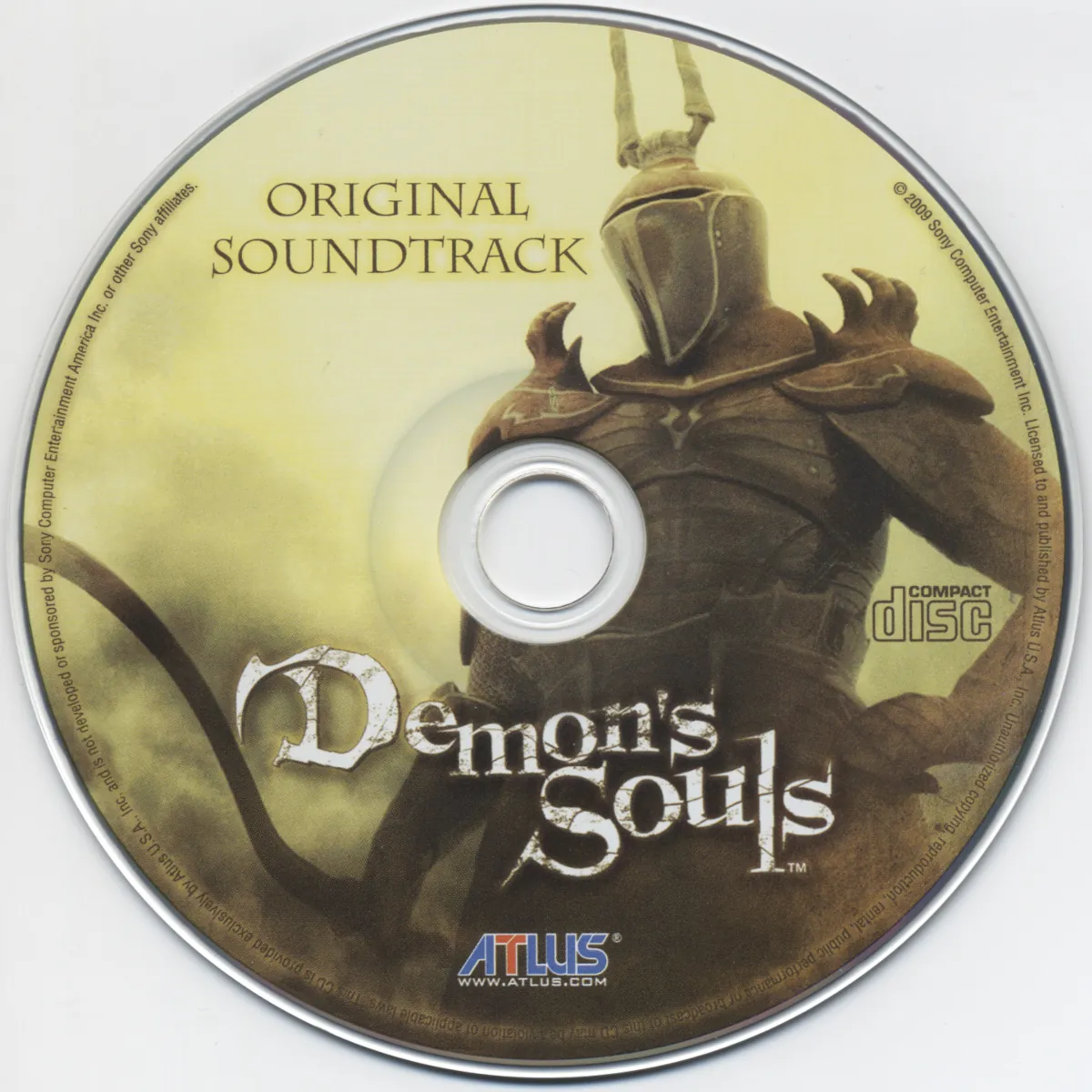I can’t help but giggle with glee over this soundtrack’s very existence. FromSoftware’s Japanese Diablo-clone, with a soundtrack by Japanese film/TV score veteran Shunsuke Kida, was not released in Japan in any way, shape, or form. But when Atlus USA localizes the game, they release a full, 72-minute soundtrack for it. A North American exclusive for one of the most cinematic soundtrack experiences to come out of Japan this year… are you kidding me?! That’s awesome!
Kida’s fully orchestrated score for Demon’s Souls has a sort of neo-retro feel to it. I don’t know if it was the recording techniques used, the post-production, or if there’s something about the performers and the written arrangements that makes it sound like a film score to a 1970s sci-fi fantasy movie. But that’s exactly what I hear when I listen to this soundtrack. You want an example? Check out those vocals on “Tower Knight.” Hopefully you get what I’m trying to say here.
The soundtrack also makes excellent use of silence. There are long pauses between melodic strains in “Maiden in Black”—these effective pauses are found elsewhere on the soundtrack, just not to the same extent we find them on track 4.
The ending vocal track, “Return to Slumber,” is one of my favorite tracks on the album. It’s like a lullaby, or rather, a dirge. The vocals are non-lyrical, but this is clearly a classically trained Japanese vocalist behind the microphone. The orchestral back-up, with the piano, really makes the song thrive. This one could be a tear-jerker for more sensitive audiophiles. You’ve been warned.
In terms of “historical” style (renaissance, baroque, classical, romantic, impressionist, modern), there is a strong baroque influence on this soundtrack. Intentional usage of instruments like the harpsichord, or certain eccentric brass instruments, confirms the baroque strain. But there are some modern pieces as well. “Fool’s Idol” uses piano primarily and uses chromatic (12-tone) and atonal patterns to convey chaos and tension. Again, the pauses of silence are incredibly effective.
The problem with many film scores and “cinematic” style musical ideas is that their embedded melodies are hard to remember, and so the average listener doesn’t want to come back. But there’s an intellectual component, as well as an emotional component, to music one struggles to remember. It can be truly mesmerizing. And, if I were to pick one adjective for the Demon’s Souls Original Soundtrack, that would be the one: mesmerizing.
So let’s all thank Atlus USA for their great work, and be sure to pick up a Limited Edition set of Demon’s Souls so you can get this soundtrack!




